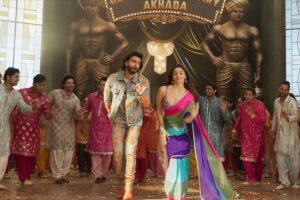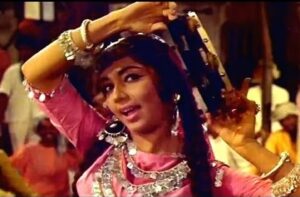
With every new bollywood movie release these days, it is almost guaranteed that the album will have a popular hit dressed up in new attire – some peppy beats, maybe electro-music, sometimes even parts from the original version. While some filmmakers might argue that these songs are important for the storyline, others will admit that it is just for nostalgia’s sake, to pay homage to the “better times”. Nostalgia is as natural to humans as our memories. Yearning for the life one has lived through and the sentimentality for the past experiences often make humans affix undue importance to certain things. Even if the homesickness for the bygone is typical, it takes a distorted form in this post modern – post capitalist world.
The new era where everything is immortalized through technological means and everything is getting a new life on digital media, memories and nostalgia have become convenient products too. The world has become a cesspool of bastardised resurrections and fake nostalgia which try to create a mass hype. To the recent attempts in Rocky aur Rani kii Prem Kahaani to various other hits and flops in the music industry, the examples are various. Even after very negative responses from the audience, in many cases, it has become almost formulaic to have a go at the old hits.
So what does seem to be the reason behind this? A few might claim that it is so because it is an opportunity to reintroduce favourite classics to the new generation. The melodies, pop hits that the parents or even the grandparents reminisce so fondly can be enjoyed by the youngsters. It is an occasion for the older and younger generation to enjoy something together and build collective memory. And on the other hand, this remake fad can be considered as just a marketing tactic. The familiarity might draw in crowds to the theater. Even if it does not succeed to do so, it might at least be able to create some buzz around the new ventures. But people are so quick to criticize these attempts. More or less it can be said that people rather dislike these remakes than embrace them. Yet this phenomenon does not look like it’s coming to an end soon.
There is nothing wrong with finding comfort in these songs either as it could be a way in which nostalgia is manifested. But it would be prudent to remember that these songs are a part of commercializing those feelings. Regressive nostalgia is marketed through retrotyping. This is a unique way of remembering that relies on a purposeful selectiveness of recall that highlights some characteristics of a bygone era while eschewing others that may undermine the celebration process and, in this instance, its economic objective. Here, one does not look into the past for guidance but for idealized images that can be advertised as an aesthetic for consumption.

As French thinker Jean Baudrillard said, there is “a caricatural evocation of an event of historical importance”. In this context, the affair of significance becomes the ever favourite hits. It can be said that through means of cultural consumption what is being consumed is not anything new. Just reproductions of the past which are sustained by a reference become the product.
So what happens is commercialization of memories through cultural recycling. Remakes, as mentioned before, can be a source of joy, an occasion to bond and muse over golden days. But they are no favourites of the consumers of the original version or the new ones. Here, recycling takes place even when next to no positive feedback is received. It adds nothing intrinsic to the nostalgia or to the fresh minds. So it needs to be questioned that like arbitrary and obsolete cycles of production and fashion of material objects, if the recycling of knowledge in the guise of nostalgia is doing something. Would we have to fear a future where there is no longer an original, specific presence at all? And standing in opposition, would there be a circulation of recycled culture which gains traction wielding the power of nostalgia? In contrast to the music industry being an eclectic mix of traditional tunes, new beats, soothing melodies and so on, it just could be attempts at varied levels of success to emulate the feelings related to the old hits.
Nostalgia is a powerful tool in this post modern era as it is a strong emotion that can influence people and also provide so many avenues like entertainment, advertisement, news, etc to commodify. The decontextualized nostalgia is a product of commodified society and also aids in commodifying memories at the same time. And this confusing contradiction sums up our life in this new age world.

